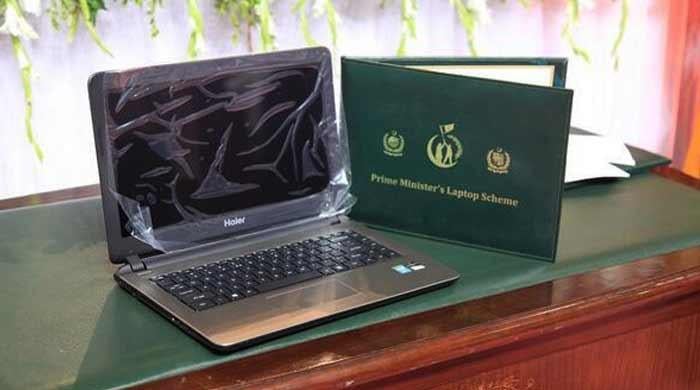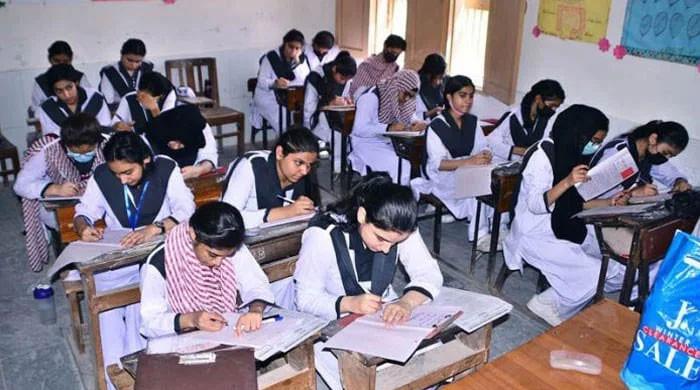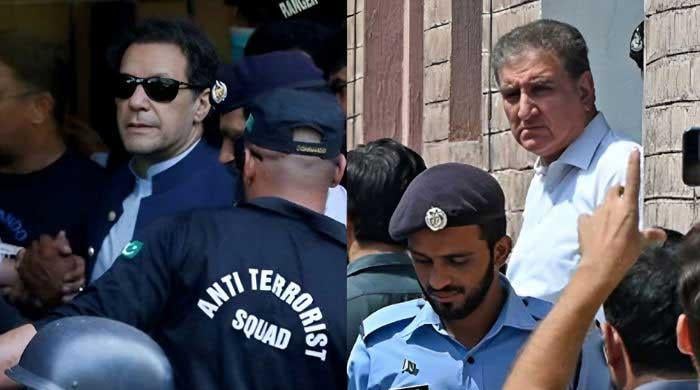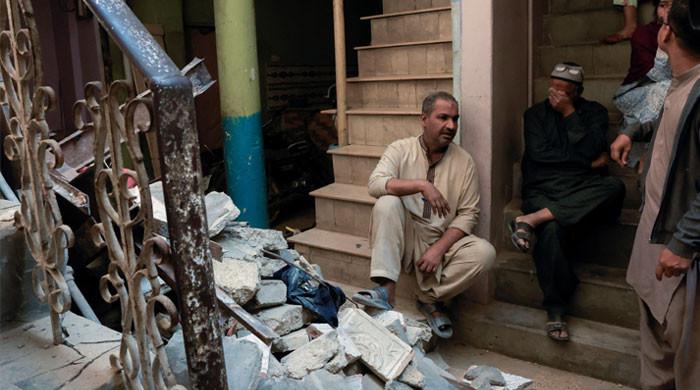Elections 2024: ECP completes printing of 260m ballot papers
2,170 tonnes of paper was used for printing of ballot papers for Feb 8 polls, says ECP spokesperson
February 05, 2024
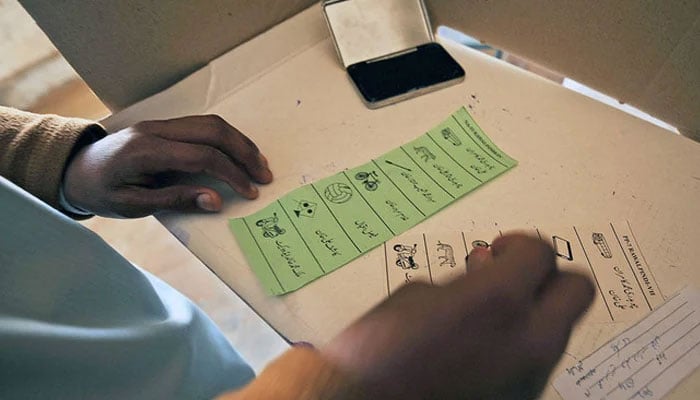
- Reprinting of ballot papers also completed.
- Delivery process across country underway.
- 2,170 tonnes of paper used for printing.
ISLAMABAD: With just three days left in the much-awaited general elections, the Election Commission of Pakistan (ECP) said that it has completed the printing of 260 million ballot papers for all the 859 constituencies across the country, The News reported Monday.
The electoral body's spokesperson said that the reprinting of some ballot papers of a few constituencies, as per the Supreme Court's orders, had also been completed on time.
He explained after reprinting, now the process of delivery of ballot papers is underway across the country, which would be completed by Monday (today).
The spokesman pointed out that 220 million ballot papers were printed in the 2018 general election and, for this purpose, 800 tonnes of special security paper was used for their printing. However, 260 million ballot papers were printed for the 2024 general election and 2,170 tonnes of paper had been used for the purpose.
He contended that the increase was mainly due to the jump in the number of candidates in the constituencies, which is one-and-a-half times more than in the 2018 elections.
According to the spokesperson, during the process of printing, many challenges were faced at various stages, including court cases and a large number of candidates, but despite limited time and challenges, the commission fulfilled its responsibility and completed the printing of ballot papers on time.
Terror attacks increase ahead of polls
Separately, the Balochistan government Sunday imposed a ban on public meetings and electoral gatherings in Quetta, citing security threats.
Balochistan Caretaker Information Minister Jan Achakzai said in a statement on social media platform X that the ban had been imposed in “response to a terror alert”, indicating the presence of a suspected female suicide bomber in Quetta. He said the public safety must be prioritised.
He said that internet service would remain suspended around sensitive polling stations in Balochistan on February 8.
He said the internet services would be temporarily suspended before the elections in 2024 in the wake of terrorism alerts. The internet service would be restricted in Turbat, Mach, Chaman and other areas of the province.
The caretaker minister said ensuring the safety of civilians was the utmost priority of the government. He said terrorists might use social media to carry out violence during the general election. “Terrorists can use social media platforms for communication purposes,” he said.
Meanwhile, a bomb blast reportedly occurred outside the ECP office in Nushki district of Balochistan. Police officials said the bomb was set outside the gate of the ECP office, however, no casualties were reported in the incident.
Questions raised on EMS
Meanwhile, a returning officer (RO) of the NA-197, Shahdadkot, raised serious questions regarding the Election Management System (EMS) — a result compilation mechanism prepared by the ECP.
The RO from the National Assembly’s constituency in Sindh, in his letter to the district returning officer (DRO), urged to pay attention to the alleged flaws in the top electoral body’s EMS.
He reported to the DRO errors in the poll management system spotted during the uploading of the polling staff details. “The names of the polling staff had vanished despite being uploaded on EMS,” the RO claimed.
Expressing concerns over the software’s performance, the officer stated that either the entire EMS was a failure or “it is being controlled by someone else”.
He also complained about getting no response from the polling authority and the National Database and Registration Authority (Nadra), who had been approached to address the queries.
According to the letter, the software was “creating difficulties” instead of smoothly performing the electoral tasks. The RO warned that the alleged flaws in the EMS would create difficulties for the smooth conduct of a fair and free general election. However, in response to the letter, the ECP officers rejected the RO’s concerns and termed them “IT incompetence of the returning officer” and a “mischievous act”.
They replied: “All ROs had successfully uploaded their forms on EMS during a training session yesterday. Not a single RO raised complaints during the training session as per the chief secretary and Pakistan Engineering Council.”
Further clarifying the situation, the ECP said the details of polling staffers had already been uploaded to the EMS and there was no need to upload the records during yesterday’s training session again. The commission added that it has trained ROs in reserve whose services could be acquired during the forthcoming polls. The top electoral body carried out a “successful” mock test of the EMS on January 27 with useful and encouraging results.





